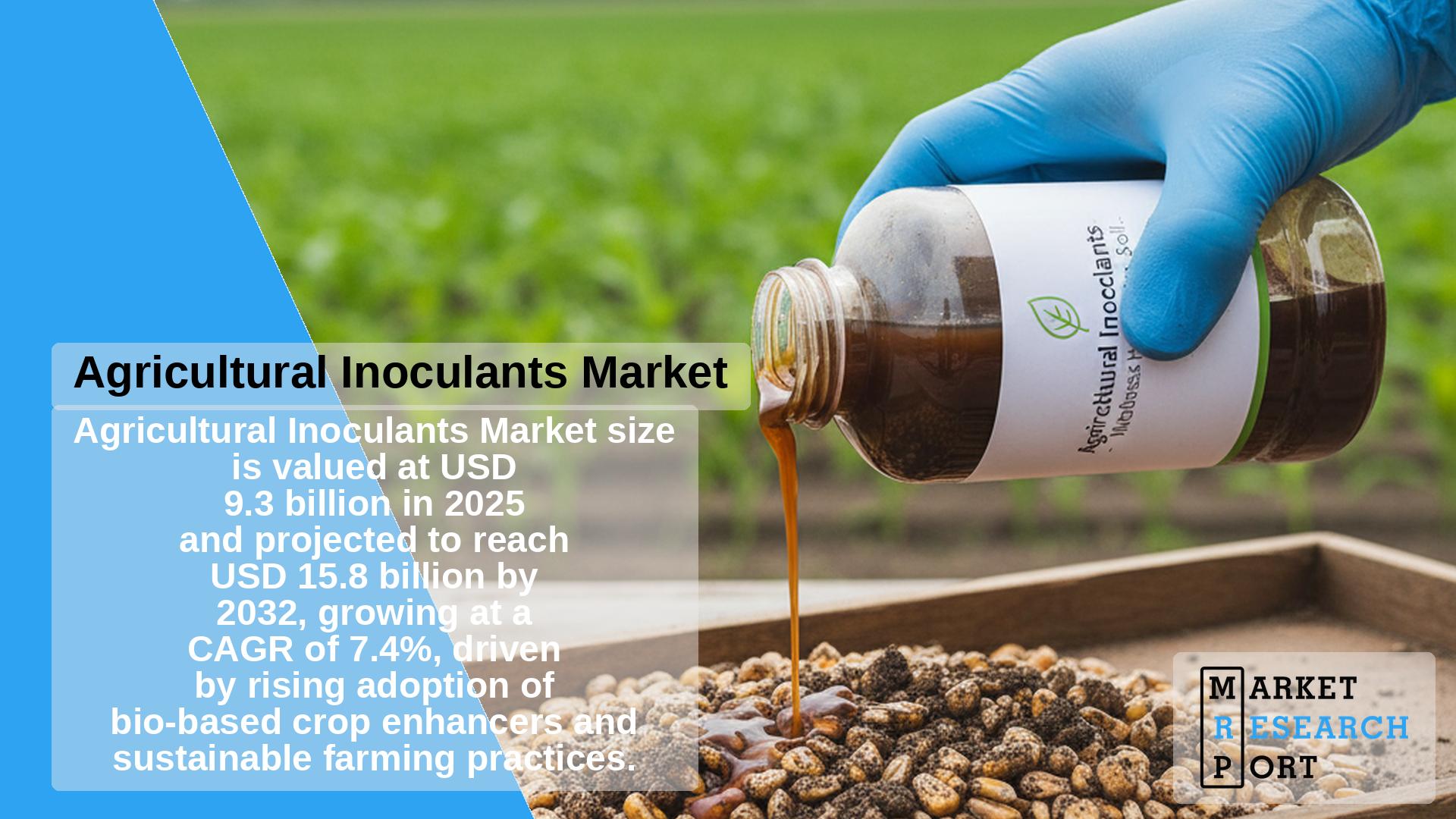
Agricultural inoculants, also known as microbial or soil inoculants, consist of beneficial microorganisms that enhance plant growth by aiding nutrient absorption, improving soil health, and suppressing diseases. These inoculants establish a symbiotic relationship with plants, acting as natural biofertilizers that enhance soil fertility and crop yield. The rising adoption of bio-based agricultural inputs that replace chemical fertilizers continues to be a key driver of global market growth.
In recent years, interest in agricultural inoculants has surged as farmers and policymakers seek sustainable alternatives to synthetic fertilizers, which are linked to environmental degradation and soil imbalance. The microorganisms present in these inoculants—such as bacteria and fungi—stimulate root development and nutrient uptake while promoting plant defenses, enhancing both yield and crop resistance. Their contribution to soil regeneration and reduced dependency on chemical inputs positions inoculants at the center of sustainable farming systems.
The widespread promotion of organic and sustainable farming practices across the world has accelerated the demand for agricultural inoculants. Governments and research bodies are supporting initiatives aimed at soil health improvement, microbial-based fertilizer adoption, and innovation in bio-agricultural products. According to updated 2025 data from the Research Institute of Organic Agriculture, global organic farmland expanded by nearly 1.4 million hectares, with steady growth in organic retail sales. Such progress underscores the rising preference for eco-friendly biofertilizers. Moreover, with the global population forecast to surpass 9.8 billion by 2050 (UN DESA, 2025), the demand for safe and sustainable crop productivity enhancers like inoculants continues to climb.
In North America, the agricultural inoculants market showed strong growth through 2024 due to increased adoption among major crops such as soybeans, maize, and canola in the U.S. and Canada. The integration of precision agriculture technologies, combined with rising awareness about soil microbiome management, is anticipated to reinforce market expansion through 2032. Recent collaborations between local biotech companies and agricultural universities in the region further strengthen innovations in microbial formulation and field application strategies.
The global agricultural inoculants market is moderately consolidated, featuring a mix of multinational corporations and regional players actively enhancing their microbial production capacities. Companies are focusing on strain diversification, precision formulation, and soil compatibility research to improve yield efficiency. In 2025, several strategic developments were noted in the sector. BASF SE announced an expansion of its microbial manufacturing facility in Germany to strengthen its biological solutions portfolio for global markets. Novozymes introduced a new multi-strain seed inoculant designed for improved nitrogen fixation and phosphorus solubilization in soybeans. Meanwhile, Verdesian Life Sciences collaborated with leading North American distributors to promote sustainable soil enhancement products.
How large is the agricultural inoculants market in 2025?
The global agricultural inoculants market is valued at approximately USD 9.3 billion in 2025 and is expected to surpass USD 15.8 billion by 2032.
What is the projected growth rate of the market?
The market is anticipated to expand at a CAGR of 7.4% from 2025 to 2032, fueled by the rising adoption of biological crop enhancement solutions and sustainable farming initiatives.
Which type of inoculant leads the market?
Plant Growth-promoting Microorganisms dominate the market due to their effectiveness in strengthening plant root systems, improving nutrient uptake, and reducing dependency on chemical fertilizers.
Which region represents the fastest growth?
Asia Pacific is expected to witness the most substantial growth, driven by advancements in bio-agriculture, increasing investments in R&D, and government programs supporting organic farming in India and China.
Who are the major players in the market?
Key companies include BASF SE, Bayer AG, Novozymes, Verdesian Life Sciences, Agrauxine by Lesaffre, and XiteBio Technologies, among others focusing on microbial biotechnology advancement.